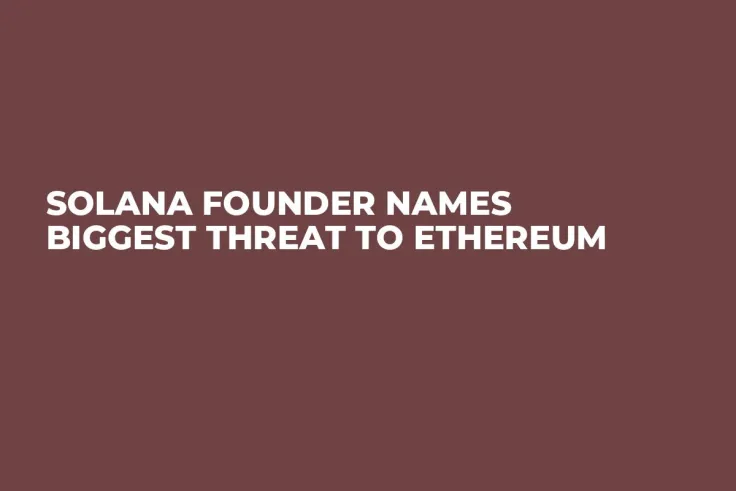Anatoly Yakovenko, Solana's co-founder, recently expressed his views on the potential vulnerabilities of Ethereum and Solana.
In a post on the X social media platform, Yakovenko opined that Ethereum's major threat could be the centralization of value in execution hotspots.
He contrasted this with a risk for Solana, which hinges on the significance of atomic composability in the blockchain industry—a foundational aspect of Solana's design.
Ethereum's centralization risk
According to Yakovenko, Ethereum may face a major challenge if blockchain networks start to centralize value capture in specific areas, or execution hotspots.
This scenario would contradict Ethereum's decentralized nature, a key aspect of its appeal and design philosophy.
Such a development could potentially diminish Ethereum's standing in the blockchain space, where decentralization is often a prized feature.
Solana's gamble on composability
On the other hand, Yakovenko acknowledged a pivotal gamble for Solana: its reliance on atomic composability.
This feature allows different components and transactions within the blockchain to interact seamlessly and efficiently.
Solana's architectural bet on this aspect aims to enhance performance, but Yakovenko admits that Solana's long-term success could be at risk if the blockchain industry does not value atomic composability as highly as Solana does.
The messaging problem
Blockchain expert Qiao Wang recently criticized Ethereum for its overly complex marketing and technical jargon, arguing that such an approach could deter new developers.
Ethereum's co-founder, Vitalik Buterin, chimed in, acknowledging the need for more straightforward communication, particularly towards developers.
"Yeah I agree we can be better at separating out the messaging. The key info for devs is much more like the top of this chart than the bottom," he wrote.



 Dan Burgin
Dan Burgin Vladislav Sopov
Vladislav Sopov